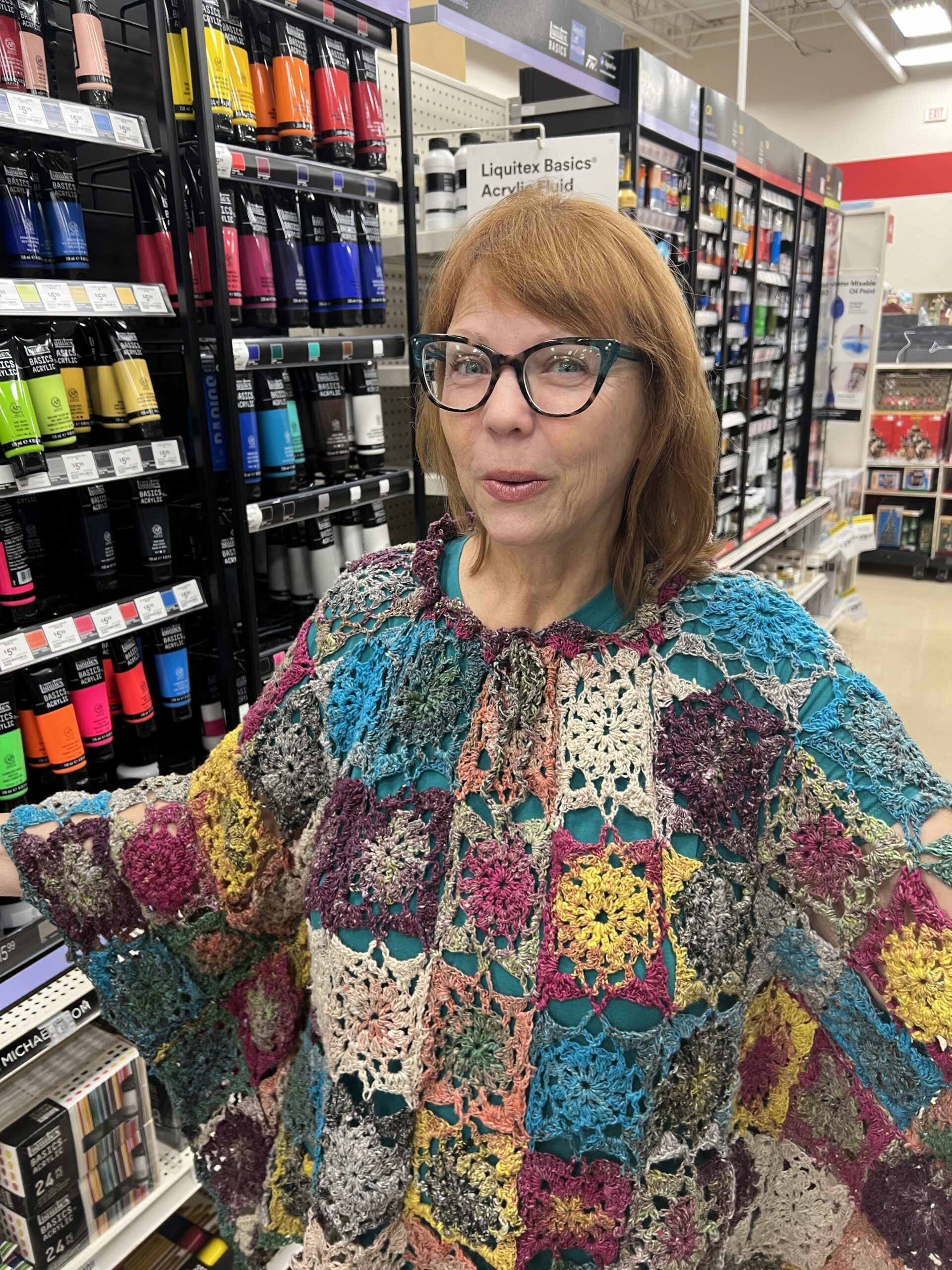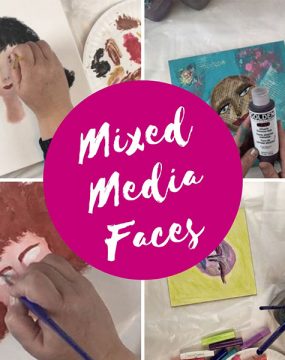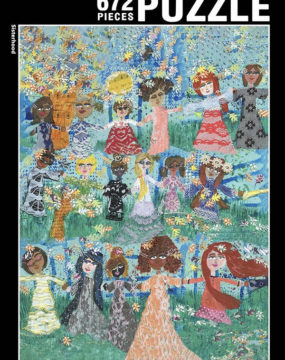Years and years ago I had a really good friend who seemed to be a great listener and very supportive when I was struggling.
She was doing well and I wasn’t. Within a few months, however, my situation changed. Everything in my life was operating better and positive changes were emerging. It was a really exciting time.
The trouble is, my friend started to become dark. First it was a few snarky comments here and there. Then, she’d make fun of me or tell how annoyed she was at certain positive things going on in my life. To make it even more confusing, she’d sometimes call me out of the blue and still act like we were friends, but after a moment she’d start in again on her negative comments.
I didn’t get it. What did I do wrong? I couldn’t help wondering, so of course I asked her about it. Nothing, she assured me, was wrong. Things went like this for quite a few months. I’m pretty patient with friends. I know we’re all busy and sometimes we go through bad moods, but when behavior changes this suddenly, even I had to admit that she was a better friend when I was miserable than when I was happy. She couldn’t be happy for me, but she also became toxic.
I beat myself up mentally once I got it. I went over the numerous times she’d say and do such negative things. I laughed them off at the time. She had to be kidding, right? But I finally realized that she wasn’t. Our friendship now consisted of her making fun of me and me just taking it each time I saw her.
Why do we do this to ourselves? Because toxic friends aren’t always so very easy to spot.
How Bad Friendships Sometimes Resemble Good Ones
The frustration behind unhealthy friendships is that sometimes they are hard to spot. After all, you want to give your friends the benefit of the doubt with negative behavior at times. Things aren’t always cut and dry. A friend may have a really bad day and say awful things that they apologize for later, but does that mean they are verbally abusive? No. Sometimes toxic behaviors can only be diagnosed when they are witnessed over time.
Here are ten reasons why it’s hard to spot a toxic friend or unhealthy friendship right away.
All Friends Have Bad Moments
We’re human, which means we behave poorly sometimes. Ideally, a friend will always have your back, be gently honest, and supportive. In reality, sometimes they’re going to miss opportunities to show empathy and even worse, they’re going to be the ones that upset you with their snarky, rotten, bad behavior. What’s more? Sometimes you’re going to do the same thing. We all can do better when it comes to being self-aware.
All Friends Argue
If you haven’t argued with a friend yet, give it time. Eventually, two friends who share some degree of time and space together are going to argue. The disagreement may be small or huge, but it doesn’t mean it’s a bad thing.
In fact, you often can’t get close to someone until you’ve worked through a major argument. Doing this means that you’ve put the friendship first and worked hard on a compromise. It means that you care enough about the friendship to be real with your friend.
Friends Don’t Always Agree on Life Choices
Disagreeing on choices is different than arguing. In fact, people may never argue about a differing life choice, but they will silently stew about it. They’ll think: Why does their friend act like this? Why do they vote like this? Why are they doing this and not that?
Some people find it especially difficult to comprehend that a friend who otherwise shares so many things in common with them would differ on a major life choice or opinion. This is where the true meaning of friendship is tested. You should be able to be friends with someone even if you disagree with some of the things they are doing. It doesn’t mean you endorse these beliefs as your own, but it does mean you treat your friend with respect and try your best to understand where they’re coming from. Maybe if you do this, they can appreciate and respect you in the same manner.
Even Good Friends Don’t Always Support You
We’ve got this ideal in our heads about friends being perfectly supportive beings, always saying and doing the right thing. In reality, they have their own problems, are sometimes selfish, and don’t even have a clue that they dropped the ball when it came to supporting us in a key moment in our lives.
There are two reasons for this. Either you haven’t communicated just how important a certain thing is to you, or your friend just doesn’t get it. Having a friend fail to show up to your birthday party or forget to call after you have your baby can happen. When it does, you need to talk it out. (Never let things sit and get worse.)
Once again, it isn’t the occasional slip that means your friend is toxic, it’s the consistently selfish behavior over time.
Even the Most Generous People Sometimes Make It All About Them
One of the biggest complaints about toxic friends is that they are completely self-absorbed. They’ll turn every event and conversation to their own life, and barely give yours a passing glance.
In order to determine if your friend is toxic, understand where she is coming from when she makes it about her. Does she have low self-esteem? Is she going through a particularly hard time and needs some patience from you? Is she an “otherwise great friend” except for particular moments? If you answer yes to these questions, there might be more going on than a toxic situation.
Even Great Friends Sometimes Get Jealous
Jealousy is a natural reaction sometimes, and relatively harmful when you acknowledge your reasons for feeling that way. Friends can behave poorly for a short time until they get a handle on their jealousy, or perhaps they’ve felt slightly jealous of you all along and you just didn’t notice. If they’re being snarky or taking verbal jabs at you all the time, they might be a toxic friend. However, if they’re jealous behavior is temporary, it might just mean their dealing with personal feelings that they need to reign in.
Friends May Act Differently With Other People
If you get the toxic vibe from a friend when you’re alone with her, but not when you’re all hanging out with a group, it may have at least something to do with you. Perhaps she’s just different when it’s the two of you, or maybe she knows exactly which buttons to push to get some kind of reaction.
Either way, you’ll need to take some responsibility for a toxic situation like this. Figure out why you’re reacting the way you are before you label your friend as toxic.
Friends Can Change
Maybe your friend started out so supportive and lovely, and then things went sour. Perhaps you two shared a lot of misery, and when things started to improve for you they couldn’t take it. Maybe they felt sorry for you and when your situation changed for the better your friend became jealous.
People can change for the negative. If this happens, a person that was once a good friend can now have a toxic influence on your life.
You Weren’t Always Self Confident
If you lacked self-esteem at one point, you might have believed that toxic behavior needed to be “put up with” in order to have friends. This simply isn’t true, but sometimes it takes us a while to see it. Don’t be too hard on yourself if this is the case. As you learn and grow, you’ll discover who is really a friend.
Toxic Comes on Soft at Times
One of the biggest reasons it’s difficult to spot a toxic friend is that toxic behavior isn’t always about yelling or being obviously demeaning. In fact, very often toxic behavior is slow and subtle. A toxic friend treads lightly until they find out more about you, and when they do they begin to verbally attack or manipulate.
By the time you’re feeling that something is wrong, a toxic friend has you questioning your own beliefs. You want to believe they are still your friend, but they keep hurting you. To really figure out if a friend is toxic, it often takes some time apart so you can reflect back on the things that went on. Then, trust your gut. If a friendship isn’t positive ask yourself why you’re spending time on continuing it.
Okay, so you decided this friendship is just really bad for you and it’s time to bring it to an end. Leaving a friendship is never easy, but if the relationship has been an unhealthy one, you need to take special care to move on without added drama.
Ending a Negative Relationship
If even mentioning the end of the friendship gives you anxiety, think carefully about how you’ll go about doing it. Ending a toxic friendship properly often makes a big difference in how well you’re able to move on with your life.
If you see your friend occasionally, you can always avoid contact as much as possible, with just a response here and there if they contact you. You can continue saying you’re busy until they take the hint and leave.
If they confront you and ask what’s wrong, be honest without being hurtful. It might be tempting to say, “You’re such a drama queen!” or even “It’s all about you” but instead give specific examples and stress that the friendship isn’t right for you. Never say they are toxic or that they aren’t a good friend for you. There’s a subtle but important difference there.
Tell them the times when they’ve made you feel bad, but do it with a calm demeanor, and stress the facts.
- For example, “When you told Jane about my credit card problems, even after I asked you not to, embarrassed me. You wouldn’t have appreciated it if I had done the same thing to you.”
- Or, “When you get angry without warning it’s scary. I can’t be around that. Yesterday when you blew up at me in the mall it made me realize that this friendship isn’t right for me.”
Don’t Go Back and Forth
Toxic friendships often end and start up again and again because, by their very nature, they lead you to believe that deep down the relationship is a good one.
You’ll recognize these moments when you think:
- If my friend would just control his temper, we could be good friends.
- If my friend wasn’t so moody, we’d be great friends.
- I don’t understand why my friend acts like she hates me sometimes.
- My friend acts so cool one minute but then behaves like a bully the next.
You are in charge of your life and actions, if you are consistently putting yourself in a situation where your friend brings out negative behavior in you, take responsibility. Rather than going back and forth, think long and hard about whether you want to end the friendship, and when you do it, stick with your decision.
Never view the end of a friendship as a failure, even when it’s is an unhealthy one. There’s always something that can be learned. Every friendship, even the negative ones, should teach us something that helps us be better people going forward. Whatever the lesson, appreciate it for what it is, and then mentally forgive the friend you left behind as well as yourself. Don’t hold on to the anger and resentment that might have initiated the breakup as it will only hold you back from making new friends.







